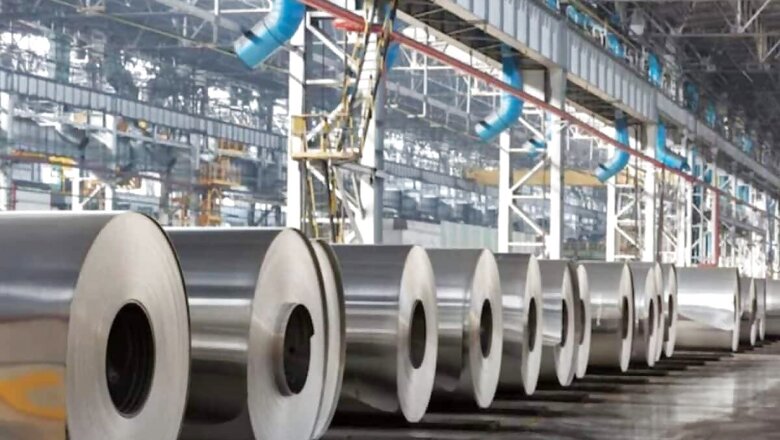
views
All India Induction Furnaces Association (AIIFA) on Thursday said that along with regional industry associations from across the country, they requested the Government to rationalise the GST structure on metal scraps, which is a pressing issue for the iron and steel sector in India.
The GST Council is the competent authority to take appropriate decisions on the matter. It may be noted that their next meeting is expected to take place on February 18.
AIIFA said that the Induction Furnace sector contributes around 35% to the total steel production in India.
The associations that represented the industry along with AIIFA in raising the request appeal to the Government are Induction Furnace Association Mandi Gobindgarh, Induction Furnace Association of North India, and Steel Manufacturers Association of Maharashtra, Induction Furnace Association Mandi Gobindgarh, Himachal Pradesh Steel Industries Association and Iron and Steel Rerollers Association, Indore, Madhya Pradesh.
The scrap steel industry, which manufactures steel by way of recycling the scrap steel by induction furnace route sources its raw material from scrap dealers.
AIIFA stated that the industry is under scrutiny as the scrap dealers have been found guilty of claiming fraudulent input tax credits. Now, to the extent the input tax credit availed is irregular, there is an underpayment of tax which eventually leads to revenue leakage for the Government.
While the Government bodies have made efforts to curb tax evasion on account of fraudulent input tax credit, the actions taken by these bodies have also led to certain practical challenges for the manufacturers, AIIFA said in a press statement.
AIIFA underlined the challenges faced by the manufacturers;
1. Local scrap dealers or traders are billing scrap on fraudulent GST bills, collecting GST from manufacturers along with the material bill, but not depositing the funds with the department. There is currently no mechanism available on the GST portal to verify the deposit of GST or the authenticity of bills. As a result, frequent raids and notices from tax authorities are sent to manufacturers seeking details of scrap purchased from scrap dealers.
2. This is also followed by a disallowance in GST credits to manufacturers on the assumption that the credit distributed by the scrap dealers is irregular.
3. Disruption in the supply chain by restriction of entry of goods supplied by scrap dealers into the factory premises of the manufacturers. At times, the manufacturers are directed to not deal with certain scrap dealers leading to disruptions in the production cycle.
Sudhir Goyal, Member, AIIFA, said, “The current GST regime causes significant disruption in the supply of the main raw material (i.e., metal scrap), thus making this a business continuity issue rather than a mere tax issue. Also, there are several litigations filed for GST disputes, which costs the industry enormous amount of cost and time both.”
“On behalf of the industry, I would request the Government to consider our recommendations for implementing Reverse Charges Mechanism (RCM) and introducing distinct HSN Codes for the old scrap and new scrap and notify old scrap under Reverse Charges Mechanism (RCM) on sales to manufacturers,” Goyal added.
The industry has proposed the following recommendations for helping the industry:
1. Exempting the supply of metal scrap from GST when it is sold by various scrap dealers, except for the last leg of the chain when it is sold to manufacturers. In that case, the GST would be collected from the manufacturers through a reverse charge mechanism, where the manufacturers would be responsible for paying the tax rather than the scrap dealers.
2. To introduce separate entries in the GST schedules and HSN codes for the old scrap and new scrap. Old scrap is already taxed at the time of the original product’s sale and the reverse logistics involves only collection and reuse. New scrap, however, is generated from a definite economic activity. Therefore, the two types of scrap should not be treated equally from a tax perspective.
The association requested if the proposal cannot be applied to all metal scrap, it should at least be considered for old scrap and notify old scrap under RCM on sales to manufacturers. The collection of old scrap contributes to a cleaner environment and decarbonisation, making it deserving of a beneficial consideration under GST.
AIIFA is an association of members that recycle iron and steel waste to make iron and steel products through the induction furnace process.
Read all the Latest Business News here




















Comments
0 comment